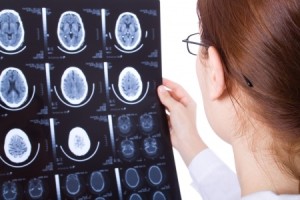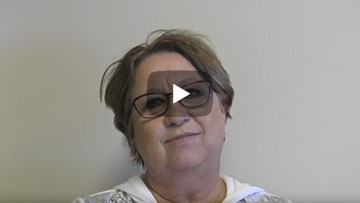
Can a Car Accident Cause a Brain Injury?
Absolutely. Car accidents, truck crashes and other motor vehicle accidents, as well as falls, contact and non-contact sports, workplace accidents and acts of violence are common head trauma injury causes. According to the Centers for Disease Control and Prevention, approximately 1.4 million individuals throughout the country suffer a brain injury every year. Studies show that car accidents account for roughly 17.3 percent of all traumatic brain injuries in the country, second only to falls.
Brain Injury
A brain injury, also, sometimes called a traumatic brain injury,TBI, head injury or head trauma, describes a form of physical trauma to the brain and head—such as a bump, penetration, blow, or shake—that causes a disruption to the normal functioning of the brain. Brain injuries, depending on the type, location and severity can range from mild to catastrophic. People can have very minor short-term symptoms or be left in a permanent vegetative state. Outcomes vary widely.
Open and closed brain injuries are two common classifications. An open head injury usually results from car wrecks, falls and other accidents where the head comes directly in contact with the interior of the car, an object or hard surface and means that the skull has been fractured. A closed head injury, on the other hand, does not involve a fracture—but can involve damage to brain tissue, possibly brain swelling and fatal blood clots inside the skull.
 A traumatic brain injury or TBI is a type of head injury that causes damage to the brain, stemming from an external force or trauma to the head. Car crashes can cause a TBI in a number of ways. Some examples include: the head striking objects in the car like the windshield, steering wheel or side window. Car wrecks involving rapid deceleration as where the car crashes into a fixed object or other vehicle at high speed can also cause TBI’s even if the head does not impact a part of the car. Falling and hitting the floor are another common cause of TBI’s.
A traumatic brain injury or TBI is a type of head injury that causes damage to the brain, stemming from an external force or trauma to the head. Car crashes can cause a TBI in a number of ways. Some examples include: the head striking objects in the car like the windshield, steering wheel or side window. Car wrecks involving rapid deceleration as where the car crashes into a fixed object or other vehicle at high speed can also cause TBI’s even if the head does not impact a part of the car. Falling and hitting the floor are another common cause of TBI’s.
Even if the skull is not be fractured or penetrated, trauma can injure the brain and a number of different ways. Examples include:
- Concussion – One of the most common types of traumatic brain injury, a concussion is a violent shaking of the brain due to a direct blow or jolt to the head. Car, other motor vehicle accidents, physical contact in sports like boxing and football can easily cause concussions. This brain injury could result in a temporary loss of consciousness or a longer loss of consciousness called a coma.
- Contusion – A bruise or bleeding on the brain that occurs as a result of a direct impact to the head. The head contacting part of the interior of the car in a car crash in certain ways, is one potential cause of this type of head trauma injury.
- Coup-Contrecoup – Refers to contusions that are both at the impact site and on opposite sides of the brain. This brain injury occurs when the force of impact is great enough to cause a contusion at the site of impact and move the brain to cause the additional contusion on the opposite side of the skull. Certain forces which occur when a car or other motor vehicle rapidly decelerates are one way that this type of injury occurs.
- Diffuse Axonal – Caused by a strong rotation or shaking of the head. Brain structures tear due to the unmoving brain that lags behind the skull’s movement, resulting in the disruption of the brain’s regular chemical and communication processes.
- Penetration – Occurs from the impact of a knife, bullet, or sharp object that forces fragments such as hair, bones, and skin from the object into the brain.
An acquired brain injury or ABI, on the other hand, results from brain damage caused by conditions not necessarily resulting from external force, such as tumors, strokes, degenerative diseases, anoxia, and hypoxia.
- Anoxia – A brain injury that occurs when the brain fails to receive oxygen. This injury can be further classified as Anoxic Anoxia, Anemic Anoxia, or Toxic Anoxia.
- Hypoxia – A brain injury that occurs when the brain receives some oxygen—but not enough.
Signs and Symptoms
Signs and symptoms of brain injuries caused by car and other vehicle crashes can vary greatly depending on the severity, location and type of injury and damage involved. They can involve a wide variety of physical, cognitive, and emotional symptoms. Basically, a brain injury can affect any function that the brain controls.
Common physical symptoms include muscle spasms, seizures of all types, loss of sense of smell or taste, light sensitivity, double vision or blurred vision, headaches or migraines, impaired speech, balance problems, and fatigue.
Cognitive symptoms to watch out for are short-term or long-term memory loss, communication problems, spatial disorientation, shortened attention span, slowed ability to process information, impaired judgment, organizational problems, difficulty in completing tasks, and inability to multitask.
Emotional symptoms of traumatic brain injury are increased anxiety, mood swings and depression, egocentric behaviors, impulsive behavior, and being agitated easily.
Mild brain injuries can be difficult to recognize. In car accidents involving more serious or obvious types of injuries these missed or misdiagnosed at the emergency room. It is common for there to be a delay between the accident and the onset of symptoms.
Treatment Options
No two brain injuries are alike, which means that treatment and rehabilitation varies according to an individual’s needs. A person suffering from a head trauma injury may be required to transfer to different facilities throughout the entire recovery process in order to obtain the appropriate therapy or treatment. Basically, a rehabilitation program will look at various components, including behavioral, cognitive, educational, vocational, recreation, and community re-entry.
Suffered a Brain Injury in a Car Accident? Contact Flick Law Firm
If you or someone you love is suffering from a brain injury or any other injury resulting from a vehicle accident, contact Flick Law Firm today. We have been successfully handling auto accident cases since 1993, and work hard to get you full and fair compensation for all your injuries.



